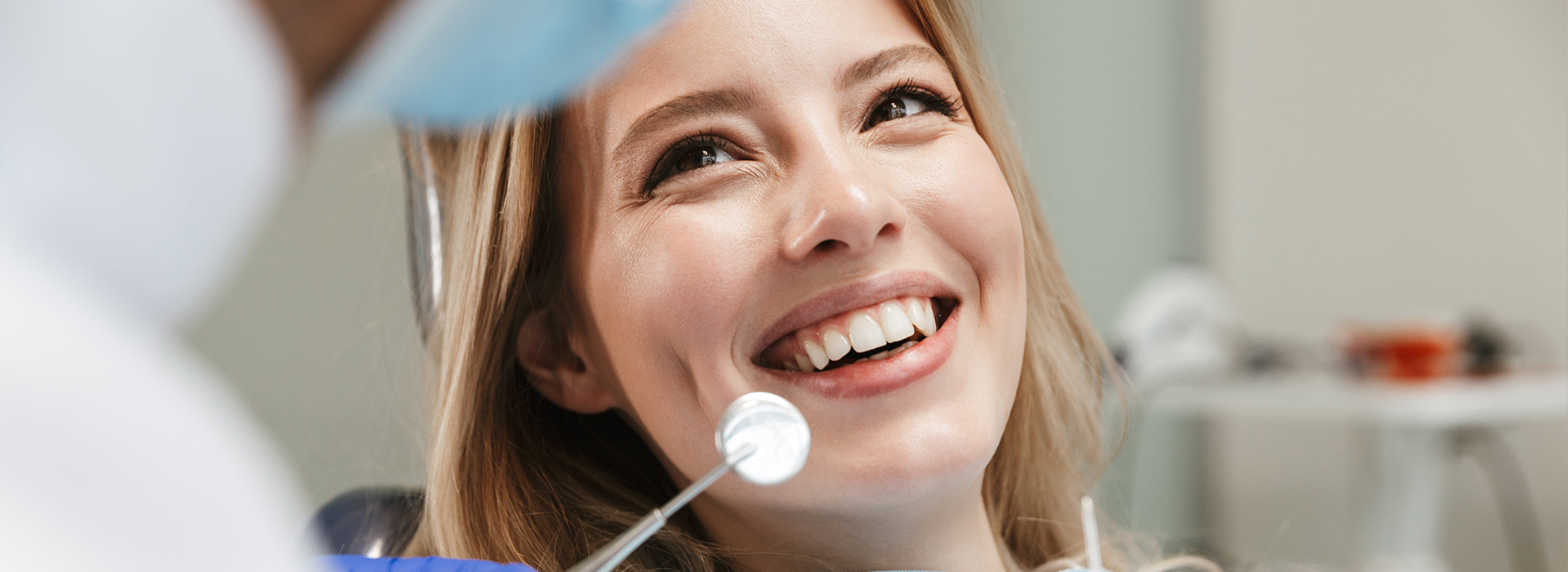

Even with careful brushing and regular flossing, many people struggle to remove the thin bacterial film and hardened deposits that collect in tight spaces around the teeth and along the gumline. Professional dental cleanings are the routine, preventive appointments that address those hard-to-reach areas, refresh your mouth, and give your dental team a chance to inspect for early signs of trouble before they become more complex. Regular cleanings are a cornerstone of long-term oral health and a simple way to protect both appearance and function.
Home care is essential, but plaque accumulates in microscopic pits and between teeth where bristles and floss may miss. Over time plaque mineralizes into tartar (calculus), which bonds firmly to tooth surfaces and can only be removed with professional instruments. Removing these deposits reduces the bacterial load in your mouth, lowering the risk of cavities and irritation that leads to gum inflammation.
Dental cleanings also serve an important diagnostic role. Because a hygienist or dentist examines the teeth and soft tissues during a cleaning, early changes — small areas of decay, receding gums, or the first signs of gum disease — can be identified and addressed quickly. Detecting problems early typically means simpler, less invasive interventions and better long-term outcomes for your smile.
There are health implications that extend beyond teeth and gums. Research shows links between poor oral health and systemic conditions such as diabetes and cardiovascular disease. While routine cleanings are not a cure for medical conditions, maintaining good oral hygiene is an evidence-based component of overall health maintenance and can support medical care conversations with your primary provider.
Modern prophylaxis combines precise visual inspection with a mix of ultrasonic and manual instruments to remove deposits safely and efficiently. Ultrasonic scalers use gentle vibrations and a water spray to dislodge tartar, while hand scalers and curettes let the hygienist fine-tune the surface of the teeth and smooth areas near the gumline. These methods used together make the process thorough and comfortable for most patients.
After scaling, the hygienist typically polishes the teeth to remove surface stains and to leave teeth feeling smooth. Polishing also prepares tooth surfaces for an effective fluoride treatment when indicated. Throughout the appointment, your hygienist will monitor gum tissue, note any sensitive areas, and communicate findings to the dentist so that any necessary follow-up care can be planned.
Patients often report that routine cleanings are straightforward and minimally uncomfortable. For those with heightened sensitivity or particular concerns, topical anesthetic gels and targeted numbing can be applied to improve comfort. Your care team will tailor their approach to make the visit as pleasant and efficient as possible.
Gum disease develops along a continuum, beginning with reversible gingivitis and, if left untreated, progressing to periodontitis where supporting bone and tissues are damaged. Cleanings play a key role in interrupting this progression: removing plaque and tartar lowers inflammation and helps gums reattach and heal when detected early.
During a cleaning visit, clinicians measure pocket depths around teeth, check for bleeding on probing, and assess tissue color and firmness. These objective measurements help determine whether a patient needs only routine maintenance or more focused periodontal treatment. Consistent monitoring makes it possible to personalize visit frequency and interventions to each patient’s needs.
For patients who have already experienced periodontal changes, maintenance cleanings can be scheduled more frequently to control bacterial levels and protect tooth-supporting structures. Early and ongoing management is the most reliable way to preserve natural teeth and minimize the need for more invasive procedures later on.
Professional cleanings are most effective when paired with thoughtful daily care. Hygienists provide individualized instruction on brushing technique, flossing, and interdental cleaning devices, adapting recommendations to factors like tooth alignment, restorations, and gum sensitivity. Small adjustments to routine habits often yield measurable improvements between visits.
Dietary guidance and lifestyle counseling — such as minimizing frequent snacking on sugary items or reducing tobacco use — are practical, evidence-based steps that support cleaner surfaces and healthier gums. Your hygienist can also recommend tools that match your needs, whether that means an electric toothbrush with a pressure sensor, floss picks, or interdental brushes for wider spaces.
Empowering patients to take effective care at home is a central part of preventive dentistry. By combining professional cleanings with targeted home practices, most people can sustain a healthy, bright smile with fewer emergency visits and less complex restorative work over time.
Today’s dental offices prioritize safety and patient comfort throughout the cleaning process. Sterilization standards and infection-control protocols ensure instruments and surfaces meet rigorous expectations; these practices protect patients and staff alike. In addition, clinics often offer amenities and techniques to reduce anxiety and improve the overall experience.
If sensitivity or anxiety is a concern, communicate this to your care team before the appointment. Options such as topical numbing, adjusted instrumentation, or brief pauses during the cleaning can make a meaningful difference. The goal is to provide a gentle, respectful visit that leaves you comfortable and informed about your oral health.
Whether you’re returning for routine preventive care or seeking support to manage sensitivity or gum concerns, your dental team is equipped to deliver reliable, evidence-based treatment with patient comfort in mind. Silk Dental Delray Beach is committed to delivering that standard of preventive care for patients across Delray Beach and the surrounding communities.
In summary, professional dental cleanings remove deposits home care can miss, help detect early signs of oral disease, and give patients personalized strategies for maintaining oral health between visits. Regular cleanings are a proactive step toward preserving natural teeth, reducing inflammation, and supporting overall well-being. For more information about dental cleanings or to discuss how often you should be seen, please contact us for additional details.
Quick Links